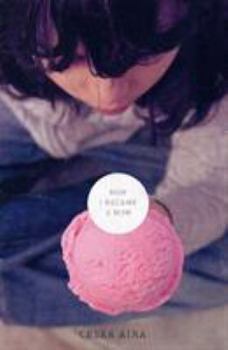How I Became a Nun
Select Format
Select Condition 
Book Overview
The idea of the Native American living in perfect harmony with nature is one of the most cherished contemporary myths. But how truthful is this larger-than-life image? According to anthropologist Shepard Krech, the first humans in North America demonstrated all of the intelligence, self-interest, flexibility, and ability to make mistakes of human beings anywhere. As Nicholas Lemann put it in The New Yorker, "Krech is more than just a conventional-wisdom overturner; he has a serious larger point to make. . . . Concepts like ecology, waste, preservation, and even the natural (as distinct from human) world are entirely anachronistic when applied to Indians in the days before the European settlement of North America." "Offers a more complex portrait of Native American peoples, one that rejects mythologies, even those that both European and Native Americans might wish to embrace."--Washington Post"My story, the story of 'how I became a nun, ' began very early in my life; I had just turned six. The beginning is marked by a vivid memory, which I can reconstruct down to the last detail. Before, there is nothing, and after, everything is an extension of the same vivid memory, continuous and unbroken, including the intervals of sleep, up to the point where I took the veil ." So starts Cesar Aira's astounding "autobiographical" novel. Intense and perfect, this invented narrative of childhood experience bristles with dramatic humor at each stage of growing up: a first ice cream, school, reading, games, friendship. The novel begins in Aira's hometown, Coronel Pringles. As self-awareness grows, the story rushes forward in a torrent of anecdotes which transform a world of uneventful happiness into something else: the anecdote becomes adventure, and adventure, fable, and then legend. Between memory and oblivion, reality and fiction, Cesar Aira's How I Became a Nun retains childhood's main treasures: the reality of fable and the delirium of invention.
A few days after his fiftieth birthday, Aira noticed the thin rim of the moon, visible despite the rising sun. When his wife explained the phenomenon to him he was shocked that for fifty years he had known nothing about "something so obvious, so visible." This epiphany led him to write How I Became a Nun. With a subtle and melancholic sense of humor he reflects on his failures, on the meaning of life and the importance of literature.
A few days after his fiftieth birthday, Aira noticed the thin rim of the moon, visible despite the rising sun. When his wife explained the phenomenon to him he was shocked that for fifty years he had known nothing about "something so obvious, so visible." This epiphany led him to write How I Became a Nun. With a subtle and melancholic sense of humor he reflects on his failures, on the meaning of life and the importance of literature.
Format:Paperback
Language:English
ISBN:0811216314
ISBN13:9780811216319
Release Date:February 2007
Publisher:New Directions Publishing Corporation
Length:128 Pages
Weight:0.38 lbs.
Dimensions:0.4" x 5.1" x 7.0"
Customer Reviews
3 ratings
Astonishing and disorganized
Published by Thriftbooks.com User , 17 years ago
The first two chapters are absolutely excruciating to read: incredibly well managed, funny, weird, tense, well conceived, and utterly bizarre. The narrator is a boy, but then again, he might be a girl: that's strange enough, because the ambiguity is managed offhandedly -- someone refers to the protagonist as "he," and someone else as "she." (The offhandedness of references to gender outdoes Yann Martel's attempt at the same insouciance.) The child is offered a strawberry ice cream. It's a special treat, because he, or she, has never had ice cream. He, or she, nearly gags on it, and Aira's description is intense and nauseating. And then -- this is only a "spoiler" for chapter 2, not for the rest of the book (and the information is available in published reviews) -- the father flies into a rage and kills the ice-cream vendor. After that utterly unique start the book unravels, or rather, Aira relaxes into a sequence of set-pieces that could have been independent short stories. It's a Bildungsroman, and you follow the little girl, or boy, through various adventures to an ending that aspires to be as willfully strange as the opening. I'd argue that the problem here is the lingering pernicious influence of magic realism. This isn't magic realism, because nothing is supernatural, and it's programmatically unromantic and unsentimental. But it's determinedly quirky and persistently exaggeratedly eccentric, and those traits, I think, are leftovers -- echoes -- of the little frissons and surrealist pleasures of magic realism. Aira is a stupendously talented storyteller, and I intend to read everything of his that is translated. On this case, the form is episodic for no clear reason (why not a more linear narrative, when Aira shows he's a master of it in the first two chapters?), and the eccentricities are artificially concocted. (It's amazing that Bolaño liked him, because they are so different -- that makes me rethink Bolaño.) It will be interesting to see if his other books have different strengths, or if he is caught in a structureless collages of short-form set pieces.
Pscyhologically, Surrealistically, Obscene
Published by Thriftbooks.com User , 17 years ago
I have never in my life hated a book as much as I hated this book. There have been very few artistic endeavors which I have undertaken or experienced that have aroused such passion as this one. Anything which can generate such an intense emotional response from me deserves at least four stars on this scale--I would have given it 5 stars only if I had been inspired to incinerate the text immediately after finishing it. Highly recommended for all those out there sleepwalking through literature.
Ice Cream surprise
Published by Thriftbooks.com User , 17 years ago
Aira has an eye for intrigue and mystery. Well into the story you sense some sort of confusion. The finale supends this feeling to its fullest height. Hitchcock would be dismayed.






